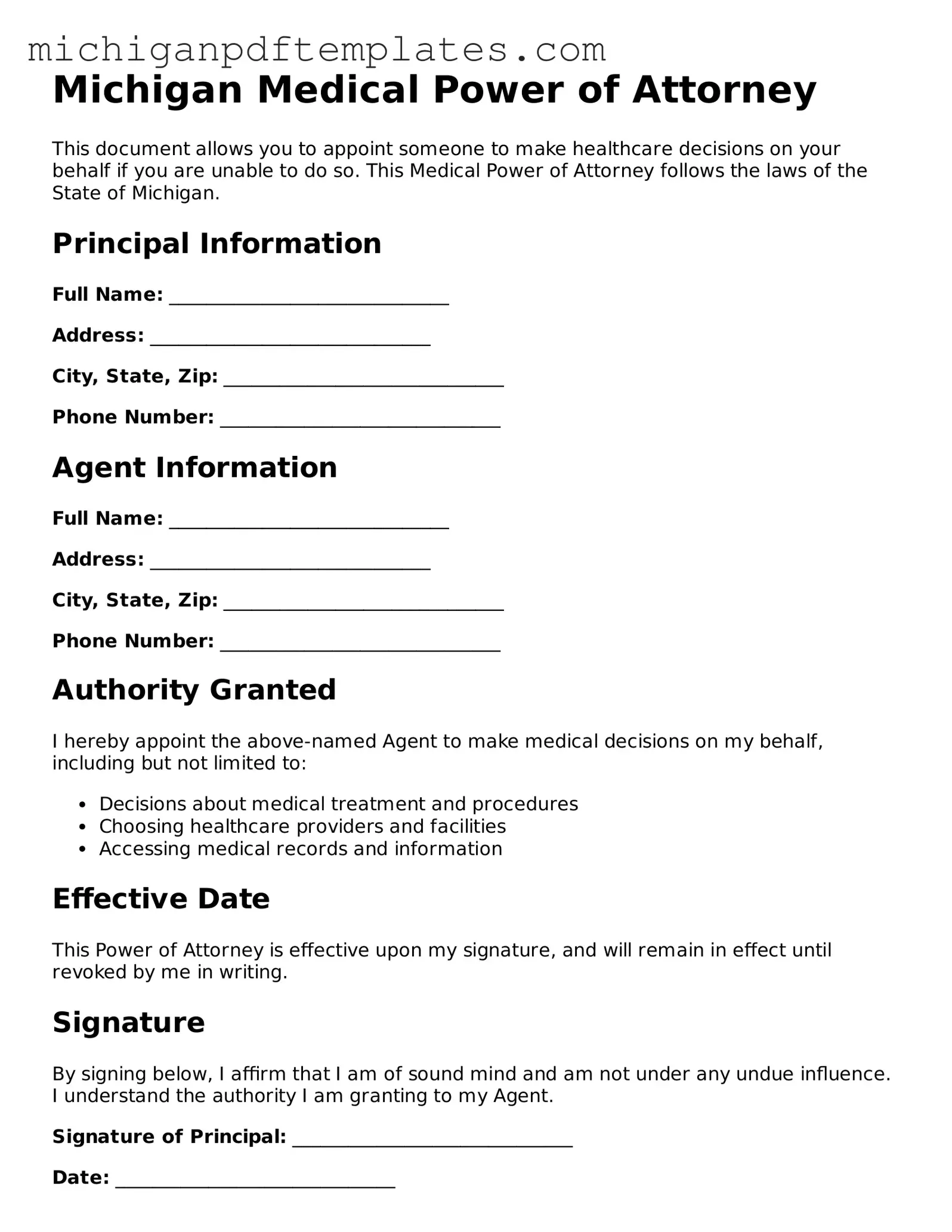Legal Michigan Medical Power of Attorney Template
The Michigan Medical Power of Attorney form is a legal document that allows individuals to designate someone they trust to make healthcare decisions on their behalf in the event they become unable to do so. This form ensures that your medical preferences are honored and provides peace of mind for both you and your loved ones. To take control of your healthcare decisions, consider filling out the form by clicking the button below.
Get Your Form Now

Legal Michigan Medical Power of Attorney Template
Get Your Form Now

Get Your Form Now
or
▼ PDF Form
Finish this form quickly and move on
Fill in and complete Medical Power of Attorney online quickly.